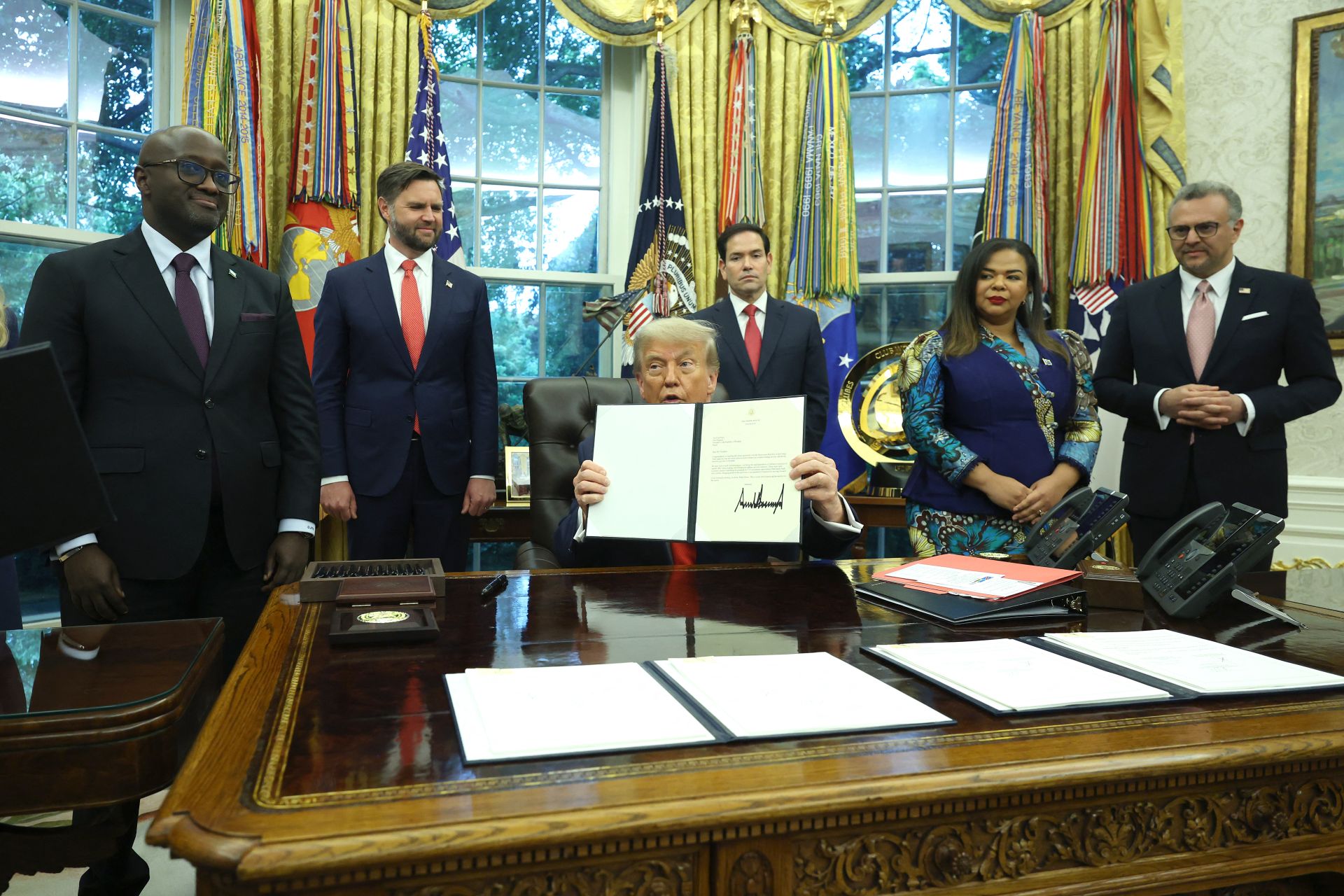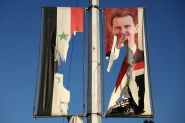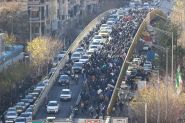- Home
- Middle East
- DR Congo, Rwanda Hold First Talks After Peace Deal

Following the signing of a peace deal in Washington last month, the Democratic Republic of Congo and Rwanda have begun talks to end decades of deadly unrest in eastern DRC - a region rich in minerals but devastated by conflict involving the M23 group, pro-Kinshasa militias, and cross-border tensions. ©JOE RAEDLE / GETTY IMAGES NORTH AMERICA / Getty Images via AFP
The Democratic Republic of Congo (DRC) and Rwanda have held their first talks after signing a peace deal aimed at ending a resurgent conflict in mineral-rich eastern Congo, the two countries said Friday.
Eastern DRC, a region bordering Rwanda with abundant natural resources but plagued by non-state armed groups, has suffered extreme violence for more than three decades.
There was a fresh surge of unrest early this year when the M23 armed group, backed by Rwandan troops, captured the key cities of Goma and Bukavu, setting up their own administrations.
Kinshasa had opposed direct dialogue with the M23, but a surprise intervention by Qatar succeeded in bringing together Congolese President Felix Tshisekedi and Paul Kagame of Rwanda in Doha in March.
A peace agreement followed in June, overseen by Washington, which has sought to increase its access to the region's minerals.
On Thursday, representatives from the DRC and Rwanda, alongside observers from the United States, Qatar and the African Union, held their first meeting in Washington since signing the peace deal.
The agreement was hailed as a significant milestone by the African Union and the United Nations after months of broken truces, even if analysts remain skeptical about the chances of long-term peace while militias still hold sway in much of eastern DRC.
The deal outlines provisions for the "respect for territorial integrity and halting hostilities", which are yet to be implemented.
It also mentions economic measures but with few details.
Regional leaders also met in Kenya on Friday to discuss the conflict.
"Peace in eastern DRC now seems more within reach than ever," African Union head Mahmoud Ali Youssouf said. "The latest agreements fill us with hope, but at the same time we remain cautiously optimistic, knowing that the road to definitive stabilization in this region is still long."
Access to Minerals
The UN says thousands have been killed in the recent unrest and hundreds of thousands displaced.
Since February, the M23 has halted an advance that at one point threatened to take the group all the way to Kinshasa.
Rwanda denies providing military support to the M23 but says its security has long been threatened by the presence in the region of the Democratic Forces for the Liberation of Rwanda (FDLR), established by ethnic Hutus linked to the massacres of Tutsis in the 1994 Rwandan genocide.
The DRC is the world's leading producer of cobalt and has deposits of gold and other valuable minerals, including coltan, a metallic ore that is vital in making phones and laptops.
Tshisekedi said in April he had discussed a deal for access to the DRC's mineral wealth with US special envoy Massad Boulos.
On July 17, the DRC government signed an agreement with US group Kobold Metals, which committed to investing in the digitization of geological data and the development of a lithium mine in southeast DRC.
The Congolese president then resolved to hold direct talks with the M23, having previously refused to do so.
The two sides signed a declaration of principles in Doha earlier this month, committing to a "permanent ceasefire" and "dialogue and negotiation" to facilitate the "voluntary" return of refugees and displaced people.
Kinshasa and the M23 gave themselves until August 8 to start talks on a comprehensive peace accord, to be signed by August 17.
Analysts view deadlines as unrealistic, especially given the M23's reluctance to withdraw from areas under its control.
With AFP
Read more



Comments